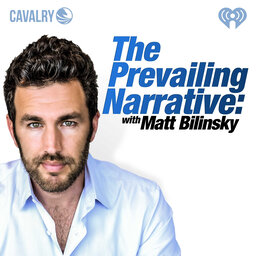Episode 5: Dispatch from Down-Under: Andrew Bogut on the Novak Djokovic/Australian Open Controversy and COVID in Pro Sports
3:09; January 6th: The Democrats Cringe-fest and a Retrospective on the Donald Trump Years
31:42; Exposing the industry of "Fact Checkers" and Facebook's admissions of "opinion"
48:05; UK Government admits kids masking in schools policy has no scientific basis
1:01:24; Ivy League Transgender Swimmer Controversy & "Elite Overproduction"
1:09:02; Andrew Bogut
Learn more about your ad-choices at https://www.iheartpodcastnetwork.com
 The Prevailing Narrative with Matt Bilinsky
The Prevailing Narrative with Matt Bilinsky


